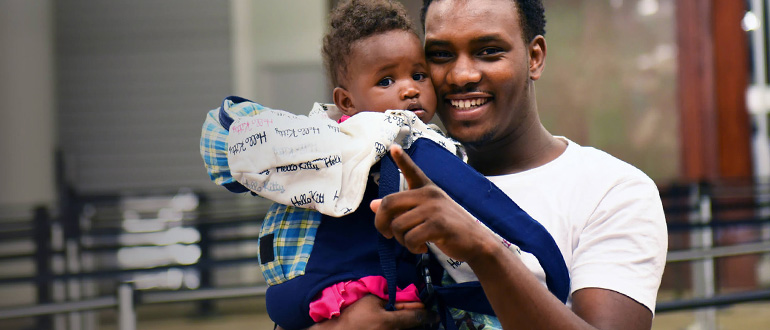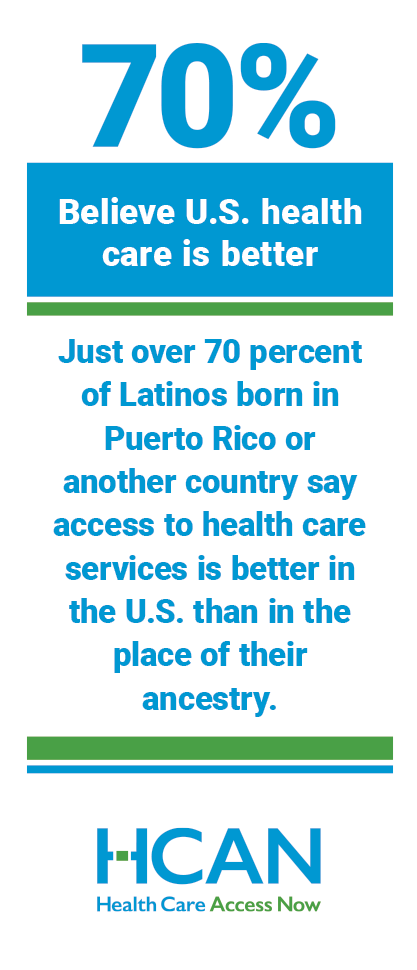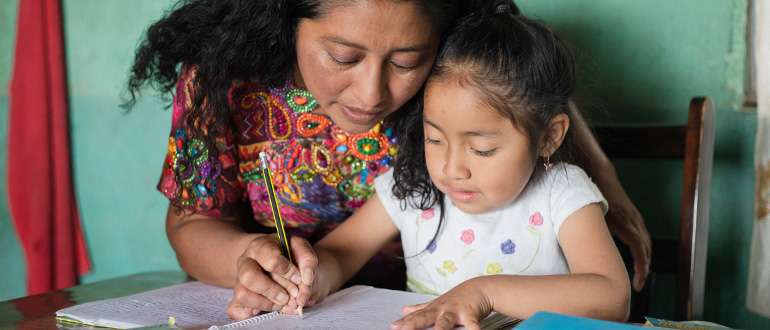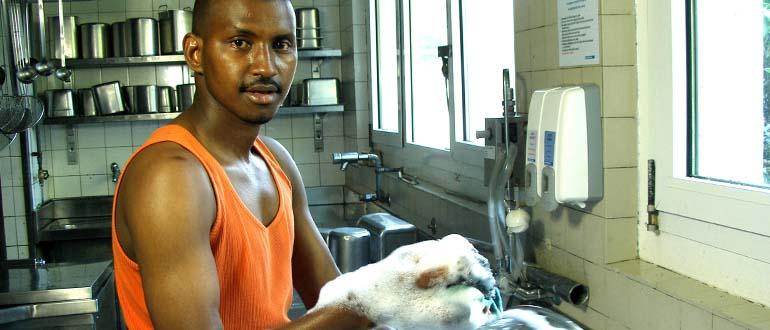Kentucky Refugee Ministries: Supporting the State’s Newest Residents

In 2021, Kelsi Sievering was part of the team that opened a Kentucky Refugee Ministries (KRM) office in Covington. The organization had long had a presence in Lexington and in Louisville, where it opened its first office in 1990. As its name suggests, KRM works with people who have been forced to leave their country of origin due to war, natural disaster or persecution. If they’ve been targeted back home, it’s typically because of their race, religion, nationality or political opinion.

When a person flees home under these circumstances, it is often with very few resources or belongings. The UN Refugee Agency (UNHCR) and the International Organization for Migration (IOM) support them in settling elsewhere. “All of our clients are sent to us from the UNHCR,” Sievering told HCAN. Kentucky is a top destination for refugees to the US, fourth after Texas, California and New York, she said. This is due to the state’s “low cost of living, availability of jobs, and availability of housing for large families,” according to the KRM website.
[Related: Cincinnati Neighborhoods: A Destination for Immigrant Newcomers]
The federal government gives each arriving individual $1,325, a one-time payment that the resettlement office uses to prepare for refugees’ arrival. “We arrange housing, pick up clients from the airport, make sure they have a fully stocked and fully furnished home to go to,” Sievering said. She wears many hats at the organization, and one is managing Refugee Cash Assistance (RCA), a monthly and state-regulated allotment that supports these newly arrived Kentuckians as they search for jobs, enroll in school, and generally learn to navigate life here. “It takes a few weeks for the Medicaid and food stamp assistance to go through,” Sievering said. “In that time, we help clients with cash assistance.”
The organization also helps refugees connect with health care. “When clients come to us, it’s mandatory within the first 90 days to receive a refugee health screening,” Sievering said. The medical case worker on staff takes clients to their health screenings and helps ensure they go to any additional appointments once a treatment plan is established if needed. He also works closely with Medicaid to help clients with billing. Clients have a range of health-related needs, Sievering said. Some have suffered accidents or are victims of violence. Others are paralyzed or unable to use stairs and need physical mobility aids. Some have mental health diagnoses and need treatment. “If they don’t have the money to afford their medicine, we have a supply of money for that,” she said.
In addition to the clients who come to KRM through United Nations resettlement efforts, some people with refugee or asylum status have heard about the organization and seek out support. Just as Louisville has become a hub for Cubans, Northern Kentucky has become a destination for people who have fled Haiti, Sievering told HCAN. “Every Wednesday is walk-in day,” she said. “Our office is just flooded with Haitians looking for services.”
[Learn More: Community Health Worker Certification & Education]






